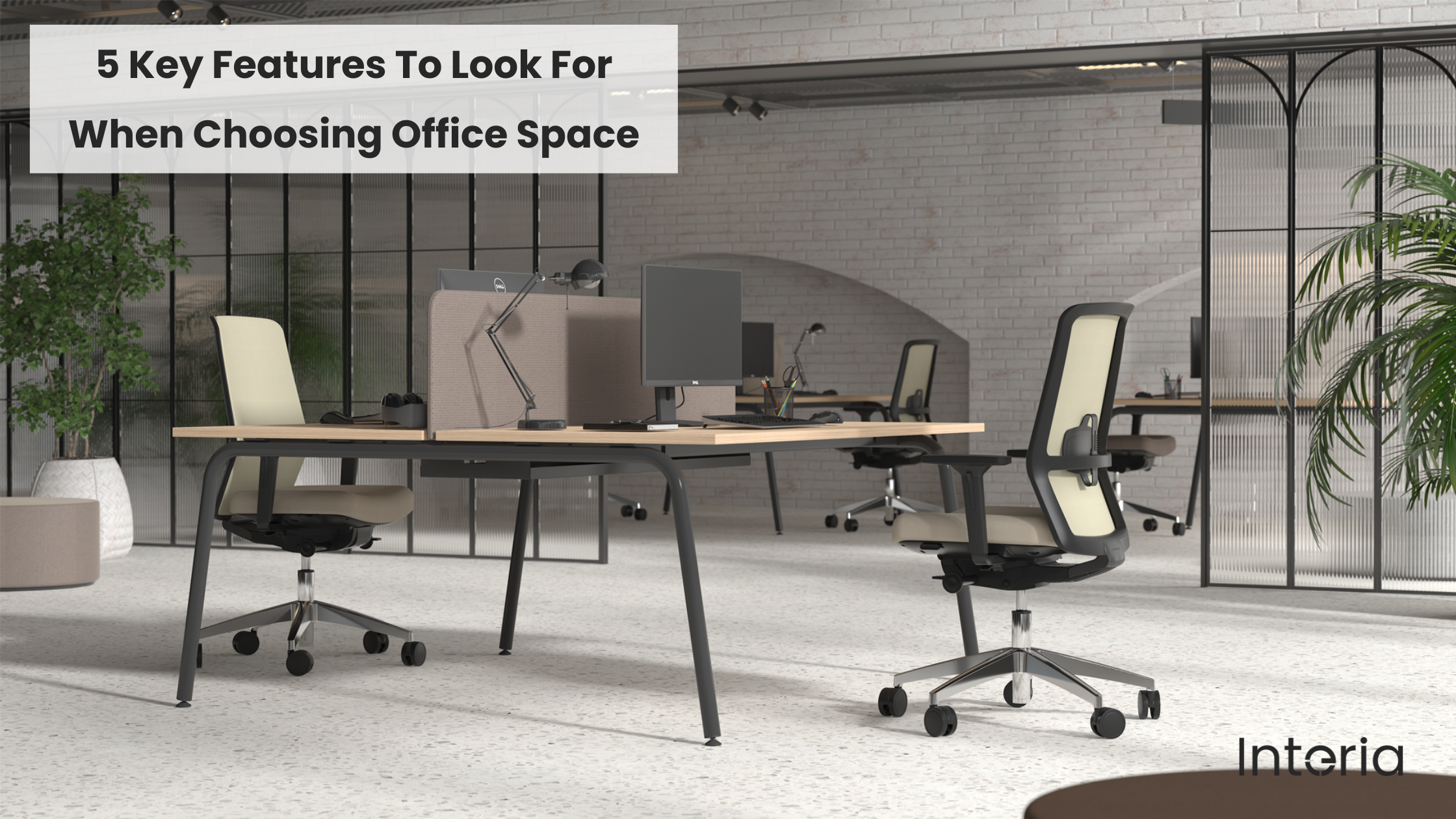
5 Key Features To Look For When Choosing Office Space
The office is not just a place where employees go about their daily tasks: it’s one of the critical pillars of sustainable business growth, and as such, it should be chosen with due care. In order to pull out all stops to peak performance metrics and employee engagement, every company should go over a number of commercial property aspects which impact both short- and long-term business conduct before it settles with the first office it stumbles across on the market. While the list of factors that have a hand in the final decision varies by industry and business-specific margins and objectives, there are five key conditions which an office needs to meet before it can earn the title of your company’s HQ.
1. Hot Location
It goes without saying: location is a key factor for long-term corporate success. Though a tad less expensive, business headquarters on the city outskirts are less likely to attract new clients, and your staff will also be in for unwarranted transport hassle getting to work, both of which will have a negative impact on productivity and sustainable corporate growth. For this reason, it may be a better idea to allocate a larger chunk of the company’s budget to office purchase and buy commercial space closer to the city center. Not only will it allow you to leverage access to a greater number of potential clients, but it will also secure your company a safe source of income should you decide to move to a bigger office and lease the old one at some point.
2. Built to Fit
Don’t let obliging realtors sweet-mouth you into buying a matchbox office in the city center: size matters just as much as the location when choosing an office to call your own. As your company grows, your staff will need all the space they can get, or else productivity might take a nosedive. As a general rule, a fast-paced office should allow at least 70 square feet per employee, as well as break rooms, kitchen, and boardrooms for staff meetings and important talks with clients. Of course, you can get a smaller office if your property purchase budget is not as sizable as you’d like it to be – but in that case, you should strive to max out the use of available square footage through space-savvy workstation design and layout.
3. The Fine Trims
Office infrastructure is one more aspect of commercial space that can make or break business success. Before you slap your brand name on that chic, spacious office in the downtown, check with the landlord whether the property is listed in the local land register with a dedicated postal address. Also, you should pick first-rate tech and review internet packages available from local providers to find a deal that fits your budget while promising stable and speedy, no-glitch web access your staff will need on peak season days. If possible, inquire about the fine frills and trims with other businesses on the block. That way, you’ll avoid cashing out for a small fortune for an office that doesn’t promise comparative corporate growth value for the money.
4. All in Its Place
Once you’ve found the property that fits the three main criteria listed above, turn your attention to the state of the office and run the relevant surveys and inquiries with the local authorities. It would also be a wise idea to hire professionals to conduct all relevant Compare Inspections on your behalf. The results of a strata search can save you extra costs on the annual level, so don’t skip it if you want to get the biggest bang for the office purchase buck. The office space should also be inspected for signs of mold, pests, foundation faults, and plumbing and wiring defects which can cause additional repair and renovation expenses once the property passes into your company’s hands: it’s always better to be safe than stripped of extra business funds.
5. Price Matters
Last but not the least, your new corporate HQ needs to fit both your brand’s needs and the total investment budget available for the purpose, which is probably the trickiest part of the property purchase puzzle. Unless you have a hefty chunk of capital lying around, you may need to go over mortgage deals and loan interest rates in order to raise the necessary funds. If your brand has a solid financial profile and corporate credit rating, your company shouldn’t have major problems getting its hands on a loan line to cover the costs of office purchase. Still, be careful and read the fine print before you sign your name on the dotted line to avoid unannounced interest hikes and extra debt that wasn’t mentioned during the loan interview.
Finding an office to call your own is a touch-and-go affair, but you can avoid the pitfalls by doing your homework well in advance. When reviewing commercial property listings, pay attention to the office location, size, and infrastructure, and don’t forget to run all the necessary surveys and inspections before rushing off to sign the mortgage agreement and property purchase contract. Good luck!
Author Bio: Chloe is an art historian and a contributor at smoothdecorator.com. She is in love with photography, dance and writing. Her biggest dream is to travel the whole world and take some stunning photographs of beautiful places. Chloe also enjoys learning and writing about interior design, business and productivity management. You can find Chloe on FB and Twitter.
For help with your office furniture requirements please call us on +61 8 9359 1288 or email sales@interiasystems.com.au



